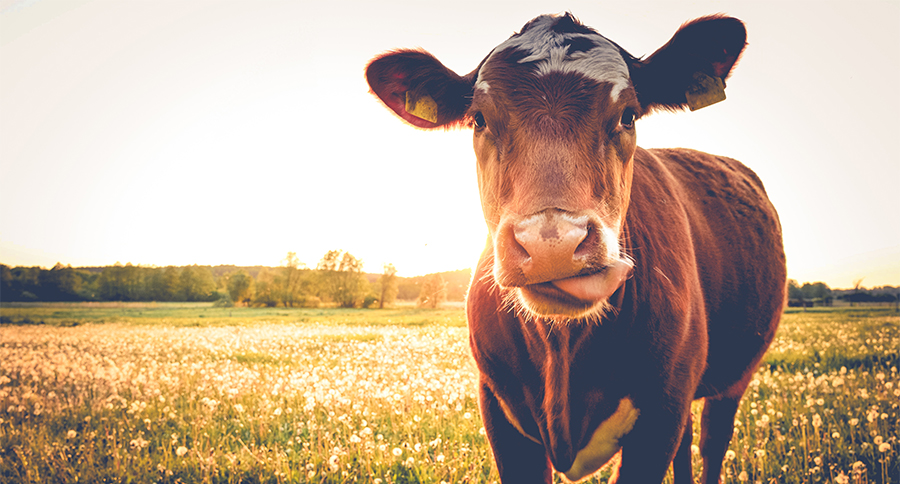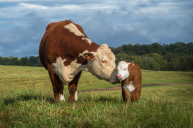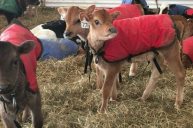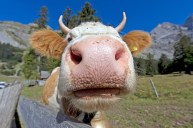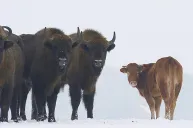Waking up in the dark sucks for everyone.
But with Daylight Saving time at least we get an extra hour of daylight at 7 p.m., says only a few annoying people on social media. Sounds like you know where I stand when it comes to turning our clocks back an hour. This week has not been pleasant waking up at 6 a.m. with the moon still dominating the sky. I guess taking my dog on a big hike yesterday until 6:30 p.m. was nice, but I'm tired.
Apparently humans adjust to an hour difference in routine in about a day, according to Dr. Amit Narula, medical director of the Sleep Disorders Center at Carroll Hospital. I'm not quite there yet and it's Tuesday, but alas.
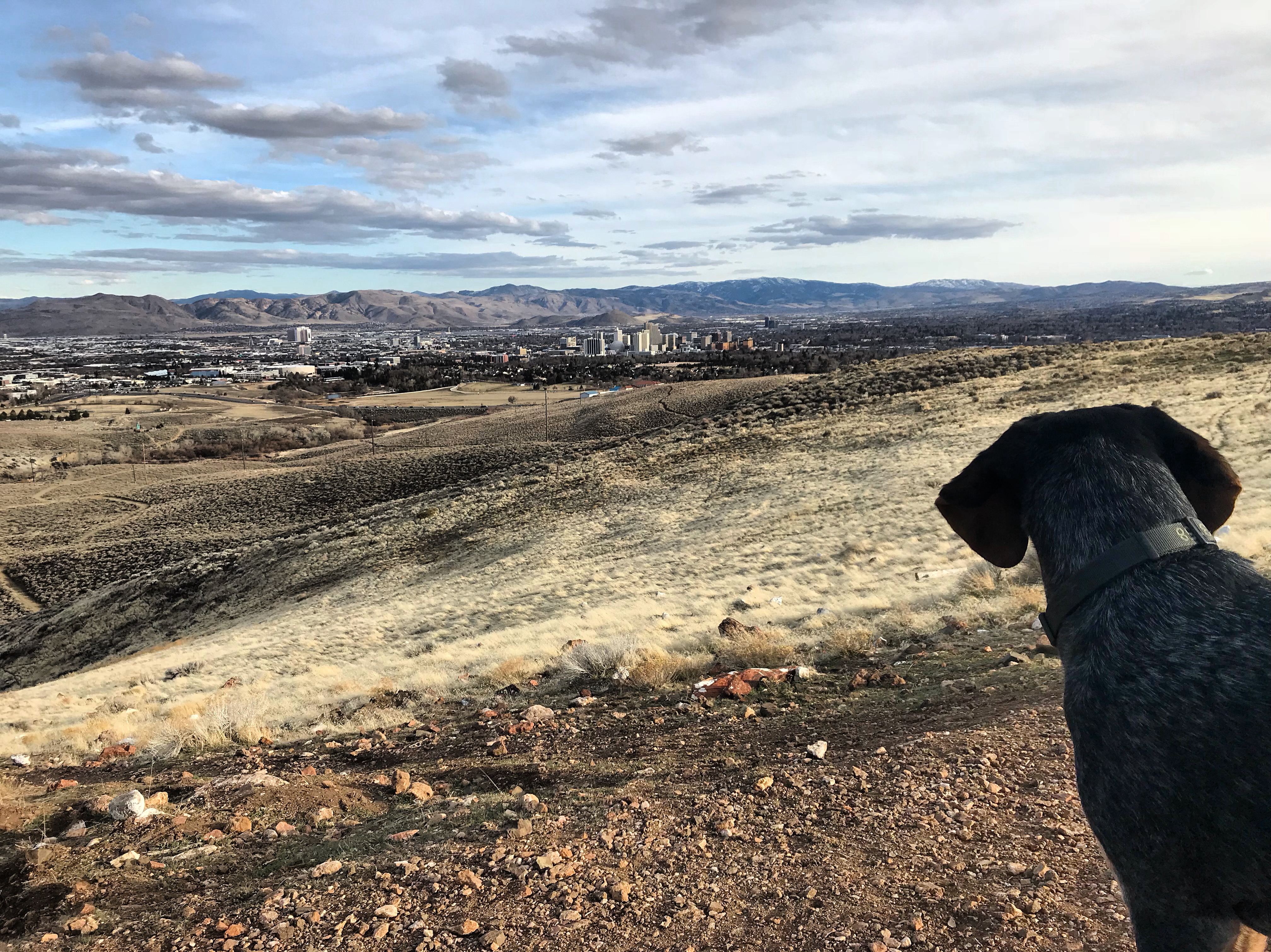
Mateja Lane
And it got me thinking about what my pets must think when they are fed in the dark at 6 a.m. now, but what was 5 a.m. only a few days ago... and it turns out that Daylight Saving actually affects animals more than we think.
Farmer Katie Dotterer-Pyle and her husband David Pyle run Cow Comfort Inn Dairy and milk their herd of 350 cows every day.
"They are like most humans, they are not receptive to change," Dotterer-Pyle told Carrol County Times. "They are very habitual animals, they like to do the same thing every day."
That means that being milked an hour before their regular time is bound to mess up their bovine beauty sleep, even though they really only sleep 10-15 minutes at a time. They are kinda like narcoleptics and just sleep small segments throughout the day. That's your fun bovine fact of the day.
So when Katie and David and their dairy employees came out in the dark to milk their cows Sunday morning, the cows weren't all too pleased with the new milking time.
"A few of them are just a little confused about what's going on," Katie said. "They are just being moody cows."
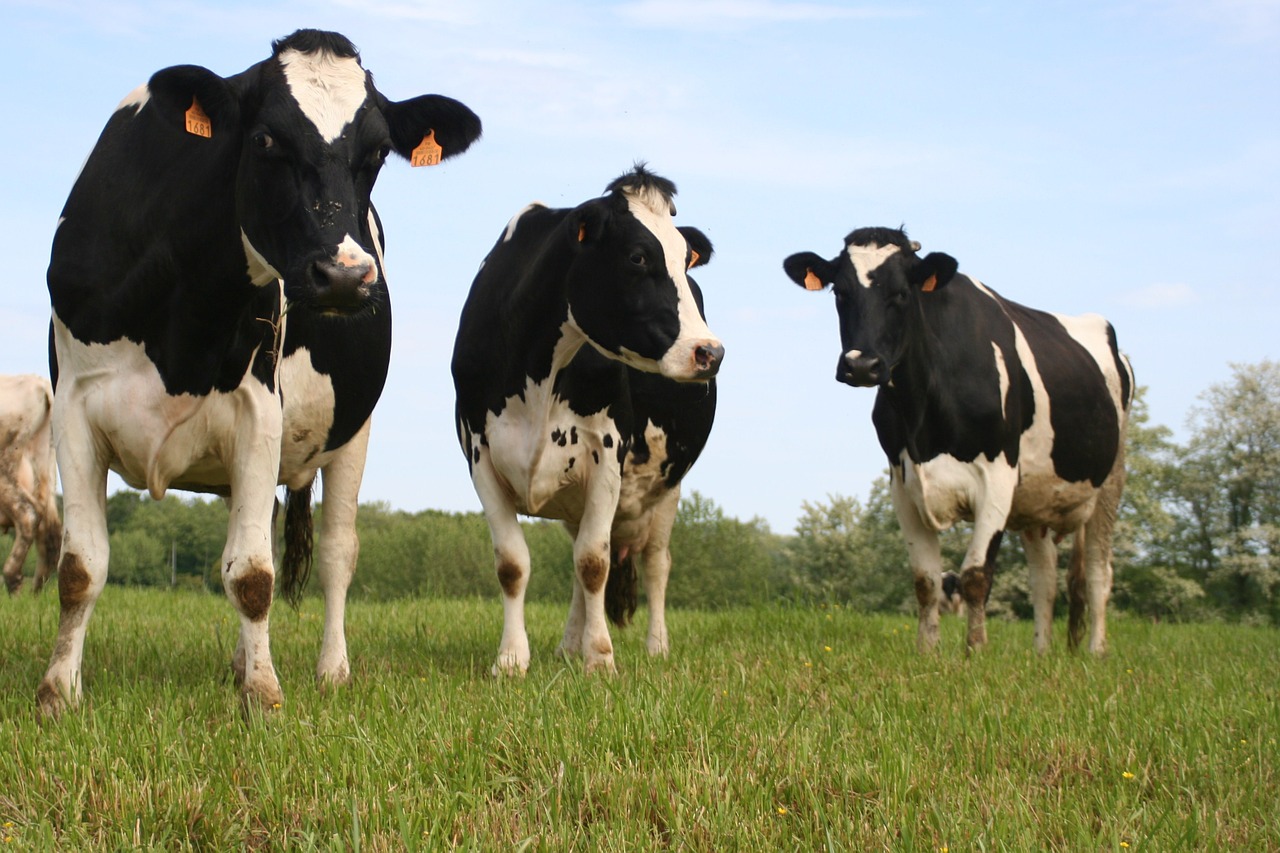
And moody dairy cows aren't the only downside to milking an hour earlier than their set schedule. They also produce less milk. Katie told the local newspaper about why a new milking schedule matters.
"The way you get a cow to produce milk is you want that cow either eating, drinking or resting — it's a very leisurely life they live. They will have one less hour to do that."
Cows take longer to adjust to a time change due to their size. The farm's Jersey cows weigh anywhere from 1,200 pounds and their Holsteins are even bigger, weighing in at 2,000 pounds.
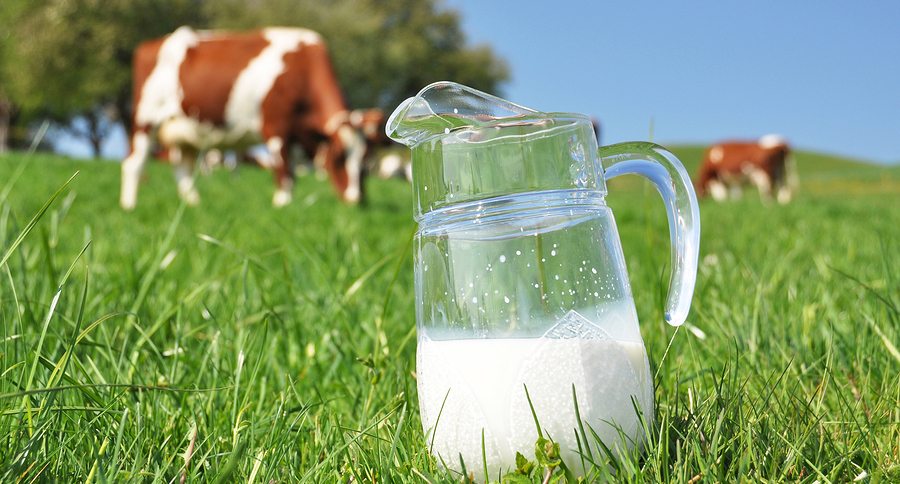
Katie and her husband want the general public to learn more about their cows and the milking process. There is even a hashtag #AskAFarmerNotGoogle so people can ask direct questions. The Dotterer-Pyles say they'll respond as long as the inquiries aren't "vulgar or rude."
"As an industry we are really trying to engage with the public about where their food comes from," Katie said. "We want people to realize, Google doesn't milk cows, farmers do."
And dairy farmers probably want to get rid of the archaic time change as much as the rest of us. It really just makes everyone crankier.
You can follow Cow Comfort Inn Dairy on Facebook, Instagram, and Twitter.
How does Daylight Saving affect you and your pets? Tell us in the comments below.
WATCH NOW: Jersey Cows Are Sweet and Their Milk Is Too!
